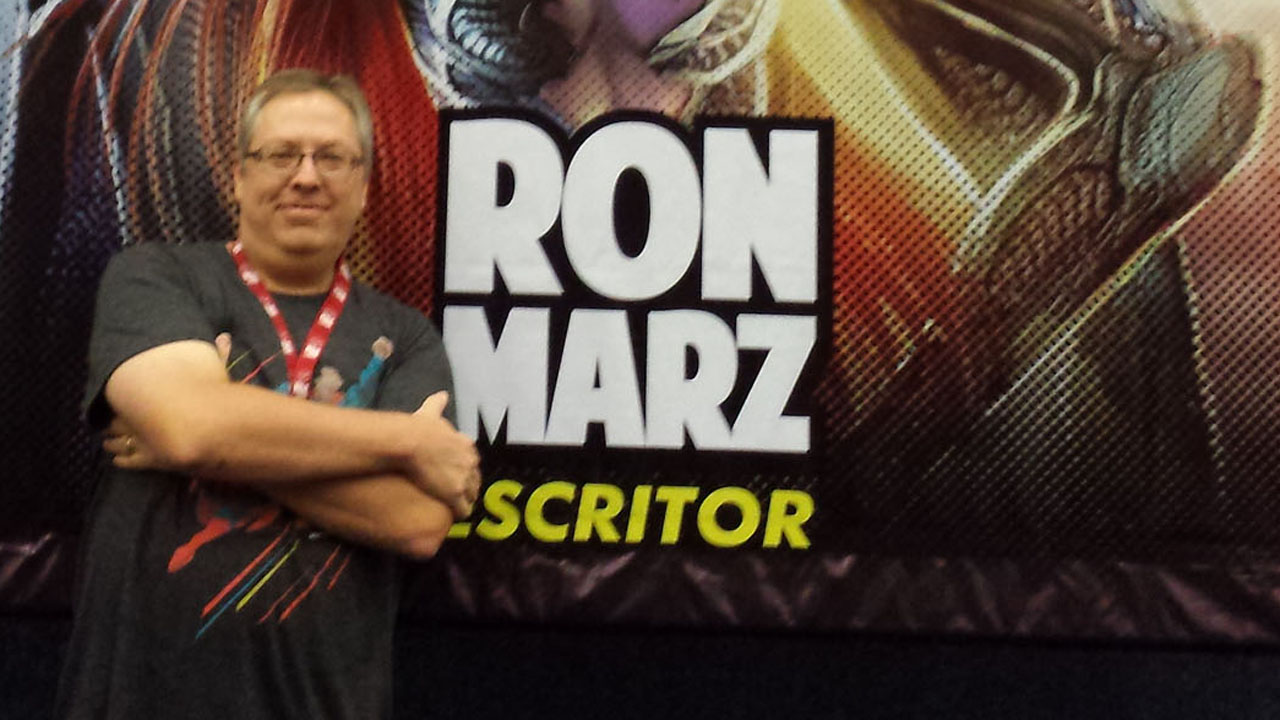
Ron Marz is a 30-year comic book veteran with a resume and storied legacy approximately a mile long (at least it feels that way on Wikipedia). Earlier this year, Newsarama spoke to Marz and artist Darryl Banks about their historic Green Lantern run, but Marz on his own is an interesting character and who many fans believe to be a "writer's writer."
Looking back at the decades-long career, it was difficult to focus on a major aspect but in our series of origin stories, we hopped around Marz's career from his time as a newspaper writer to learning the craft from Jim Starlin and eventually becoming a comic book writing teacher recently this year.
In the latest of our 'Year One'-style interview series The secret origin of…, Newsarama talks with Marz (just as he was taking his evening walk, as a matter of fact) about his early days, new projects, and even new careers.

Newsarama: So Ron, what are you working on today?
Ron Marz: Uh. I can't tell you, because it hasn't been announced yet. Neither has the other thing. Or the other, other thing. Which is kind of the writer's lot. You're a juggler, bouncing between multiple projects. When that happens on the same day due to deadline demands or other factors, it's a little tougher.
I much prefer to work on one thing on any given day, because you get into the headspace for a particular story, and it can be tough to switch gears. But, sometimes it's unavoidable.
One thing I'm working on that I can talk about is the sequel to Beast of the Black Hand, the graphic novel that I'm doing with Matthew Dow Smith and Paul Harding at Ominous Press. It's on Kickstarter right now, so I'm working on the script for Volume 2.
Get the best comic news, insights, opinions, analysis and more!
Nrama: You talk on social media about your farm that you live on, but how has the coronavirus changed your life so far?
Marz: Well, maybe not quite a farm, but we do have land and a barn and a half dozen horses.
The pandemic honestly hasn't changed life very much for me, which I'm almost embarrassed to say, since I know it's disrupted daily life for so many people. The biggest change is I can't go to the gym every day. So maybe I should just shut up. I think most freelancers are probably in the same boat, in that we worked at home anyway. So this is just more of the same, it's what we're used to. I've apparently been quarantined for most of the last 30 years, I just didn't realize it.
The only other substantive change is cons getting canceled. That's a financial hit, obviously, and everybody's feeling that. But the aspect that I really miss is the travel, the chance to see other places and meet people.
Last year, in addition to domestic shows, I went to Saudi Arabia, Scotland, Ireland, Kenya, South Africa, and England. Just amazing opportunities because I write comics. All that stuff is just gone now for the foreseeable future, and I really miss it. I haven't been more than 50 miles from my house since February.
Nrama: Ok, let's dig into your early days.
Do you remember when you were really getting into comics as a kid?
Marz: Absolutely. I was very much into Avengers and X-Men, which I was plucking off the spinner rack at the local pharmacy or deli. So probably fifth or sixth grade.
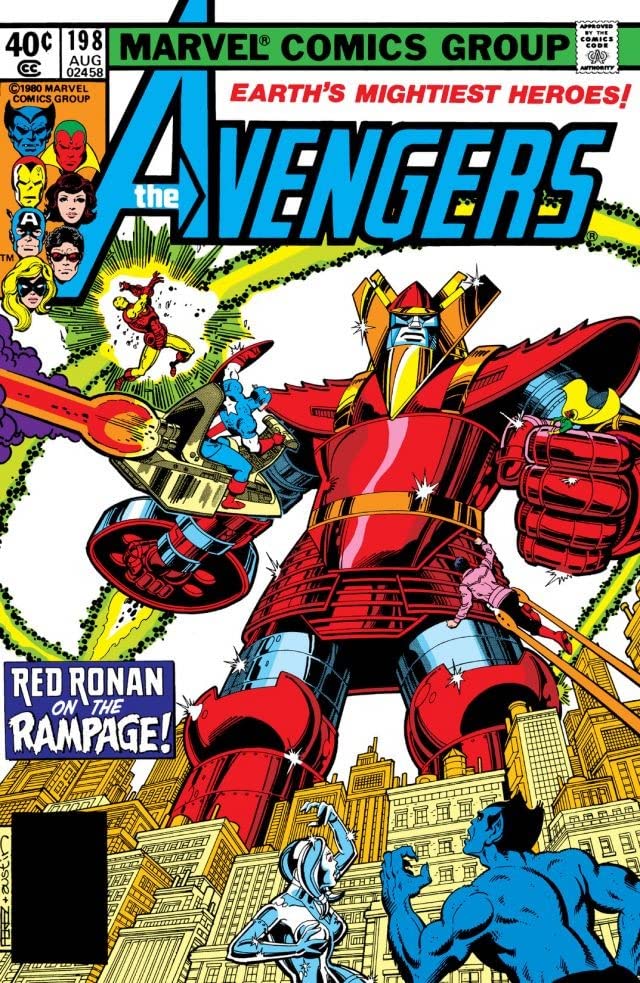
I remember taking a trip to Niagara Falls with my parents, and coming across a few Avengers issues drawn by George Pérez in a store there. It was like stumbling across buried treasure.
Nrama: You grew up in the mid '70s, so what were you picking up?
Marz: Well, Avengers and X-Men were the focus for me, but if I couldn't get them, I would pick up whatever was available: Thor, Invaders, Spidey. I was very big into Nova, because it was a ground-floor read to me, something new I could be a part of. My fascination with Nova certainly played a part in the creation of Kyle Rayner years later. I like the Marvel magazines a lot as well, Planet of the Apes and Savage Sword of Conan, even the Rampaging Hulk magazine.
I had a stack of magazines with me on a vacation we took to Nantucket. We were on the ferry coming back from the island and it was raining, so everyone was under cover. There was another kid eyeing the magazines I had with me, and my mom cajoled me into letting him read them too. I still remember he picked Rampaging Hulk #14, which had this great painted Bob Larkin cover with the Hulk cornered by some torch-and-pitchfork villagers. Cool Moon Knight story in the magazine too, which was probably my first exposure to Moon Knight.
Anyway, while the kid was reading the magazine, he dropped it onto the deck, right into a puddle. Ruined it. I was... less than pleased.
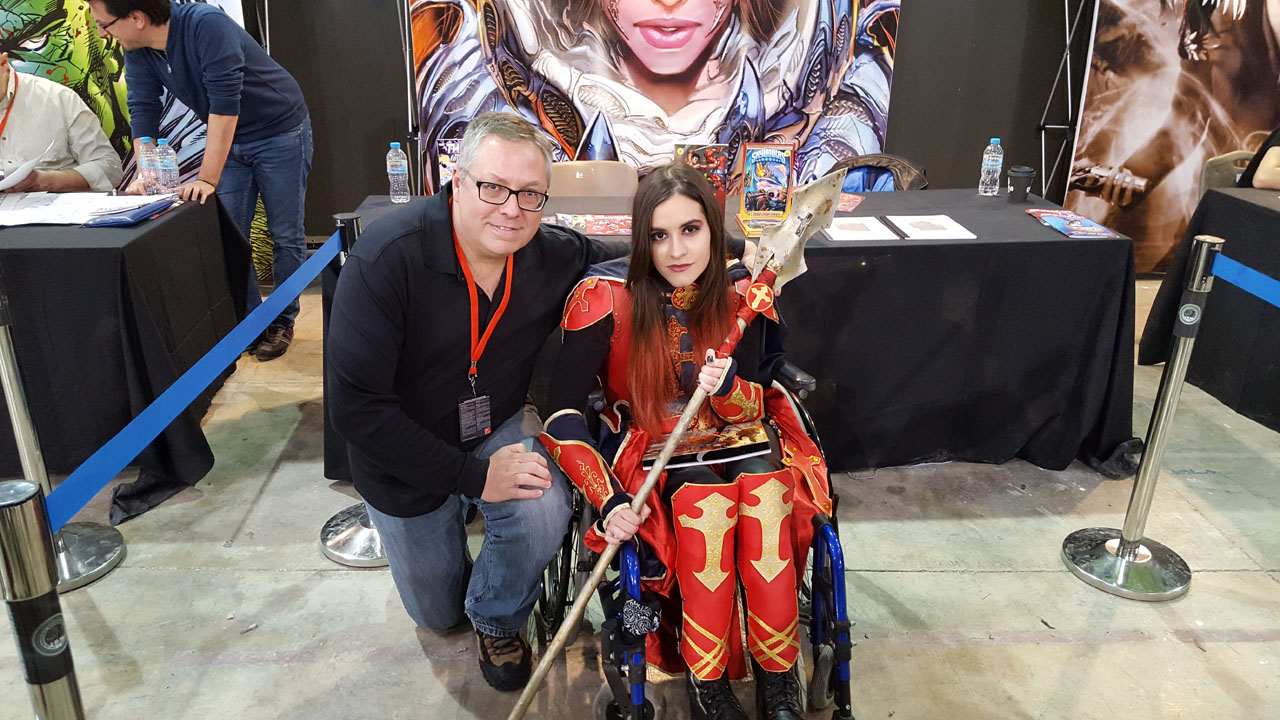
Nrama: I think you've mentioned this over the years, but eventually you fell out of comics and did more "cool" teen things like the guitar but you always kept writing. What is it about the craft that you never wanted to part with?
Marz: I kind of always knew I was going to be a writer. No other choice ever occurred to me. When I was a kid, I wanted to be Edgar Rice Burroughs, Robert E. Howard or Michael Moorcock, and write novels. That was the dream. I put comics away for a few years when I was a teenager, but I just buried my head in novels. I never lost my interest in stories, or in telling stories.
Nrama: Did you go to college for writing?
Marz: Yeah, I was a communications major, which I guess is one of those nebulous majors that doesn't really mean anything. Graduated cum laude from Marist College. I was already working at a daily newspaper while going to college, so I was already doing the job. I kept correcting my journalism professor about how a newsroom actually worked because what she was telling us was outdated. She, um, didn't appreciate the input.
When I graduated, I just went full time at the paper. And then a couple of years later I was writing comics.
Nrama: What paper were you at and what did you learn from that kind of atmosphere?
Marz: It was my hometown newspaper, the Kingston Freeman, in Kingston, New York. It taught me how to be a professional, even though I was just a kid. I started there when I was in college, 18 or 19 years old, so I was a kid working with adults, with career professionals.
The job taught me to write clearly, to write on deadline, to take a certain amount of information, and fit it into a certain space, as well as grammar fine points and AP style. It's all stuff that's really good training for comics, even though it's obviously not the same kind of writing.
Nrama: Any story that you covered you still think about if any?
Marz: A few of them. I'm sure I wrote way more than a thousand stories for the paper, including sports coverage, movie reviews, features, all kinds of stuff. But I won New York State AP awards for a few of them.
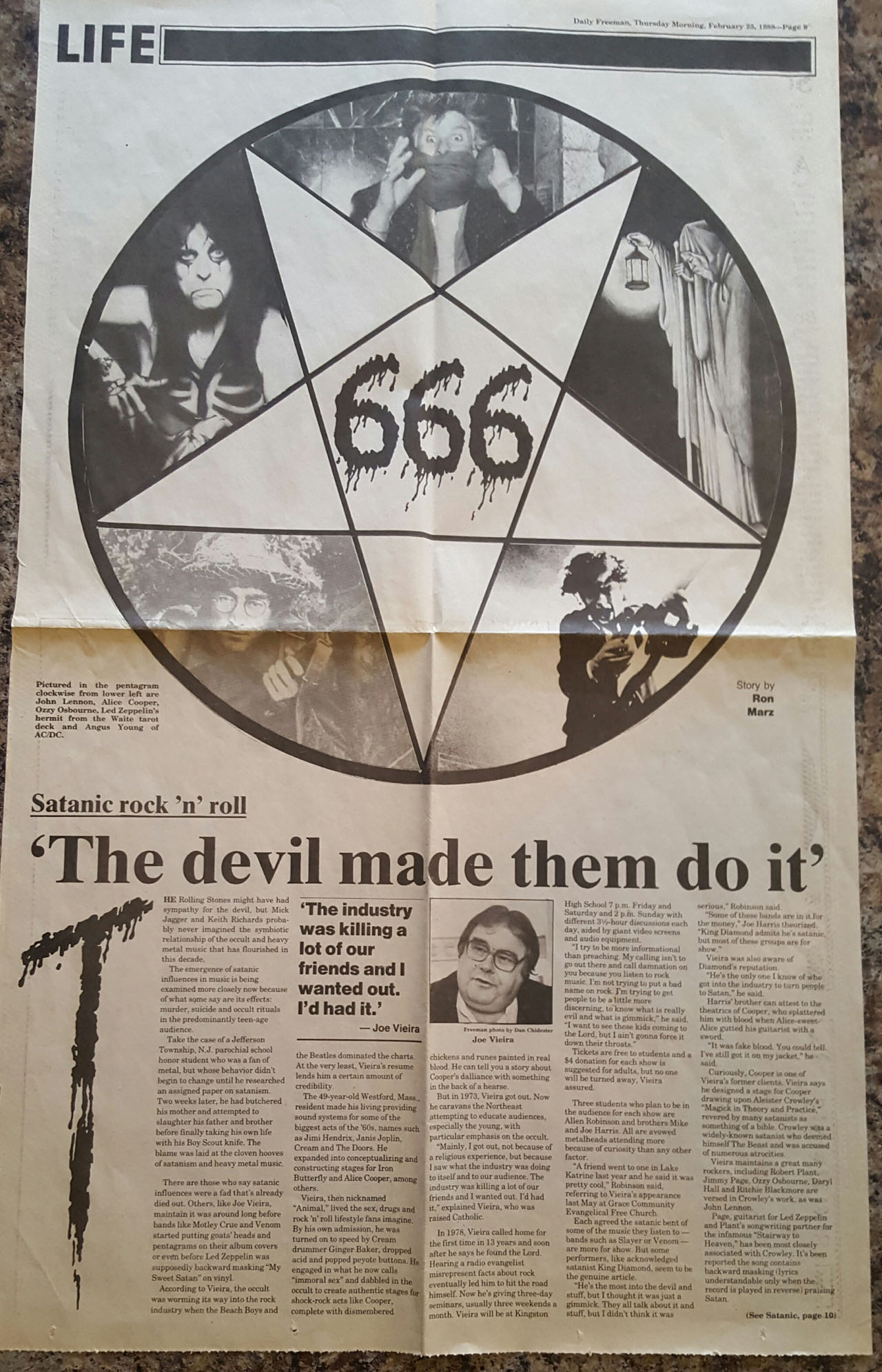
One was a magazine-length story about the satanic panic of the time, with the supposed backwards-masking in songs, black magic in Dungeons & Dragons, all that ridiculous stuff. I attended this guy's weekend seminar, which was supposed to blow the lid off Satan's nefarious plans to influence our innocent, unwitting youth. I interviewed that goofball, believers at his seminar, religious leaders, radio disc jockeys, law enforcement. So that one won an award, and so did my interview with Joseph Shabalala, the leader of the Ladysmith Black Mambazo, which was pretty well known at the time, having just worked with Paul Simon on his Graceland album.
I actually called Joseph at his home in South Africa, which at the time was a hugely expensive long-distance call. The publisher reamed my ass for the cost, because I didn't ask permission, I just did it. Six months later, it won an award for best feature interview, so I got the last laugh when he had to hand me the award in the newsroom.
Nrama: So let's get to the comic writing. Now you've been doing this for so long I don't expect you to remember everything, unless you do, but you're at a newspaper and then you're writing Silver Surfer at Marvel. How did all of that happen?
Marz: I was friends with Jim Starlin, and still am, of course. I was part of the social circle of comic creators and illustrators, thanks to being introduced to it by Bernie Wrightson, whom I got to be friends with after interviewing him in college. We played racquetball together, went to the same parties, went to the movies and dinners together. So Jim asked me to copy edit his first prose novel, because I was at the newspaper. He liked what I did well enough that he suggested to me I should think about writing comics.
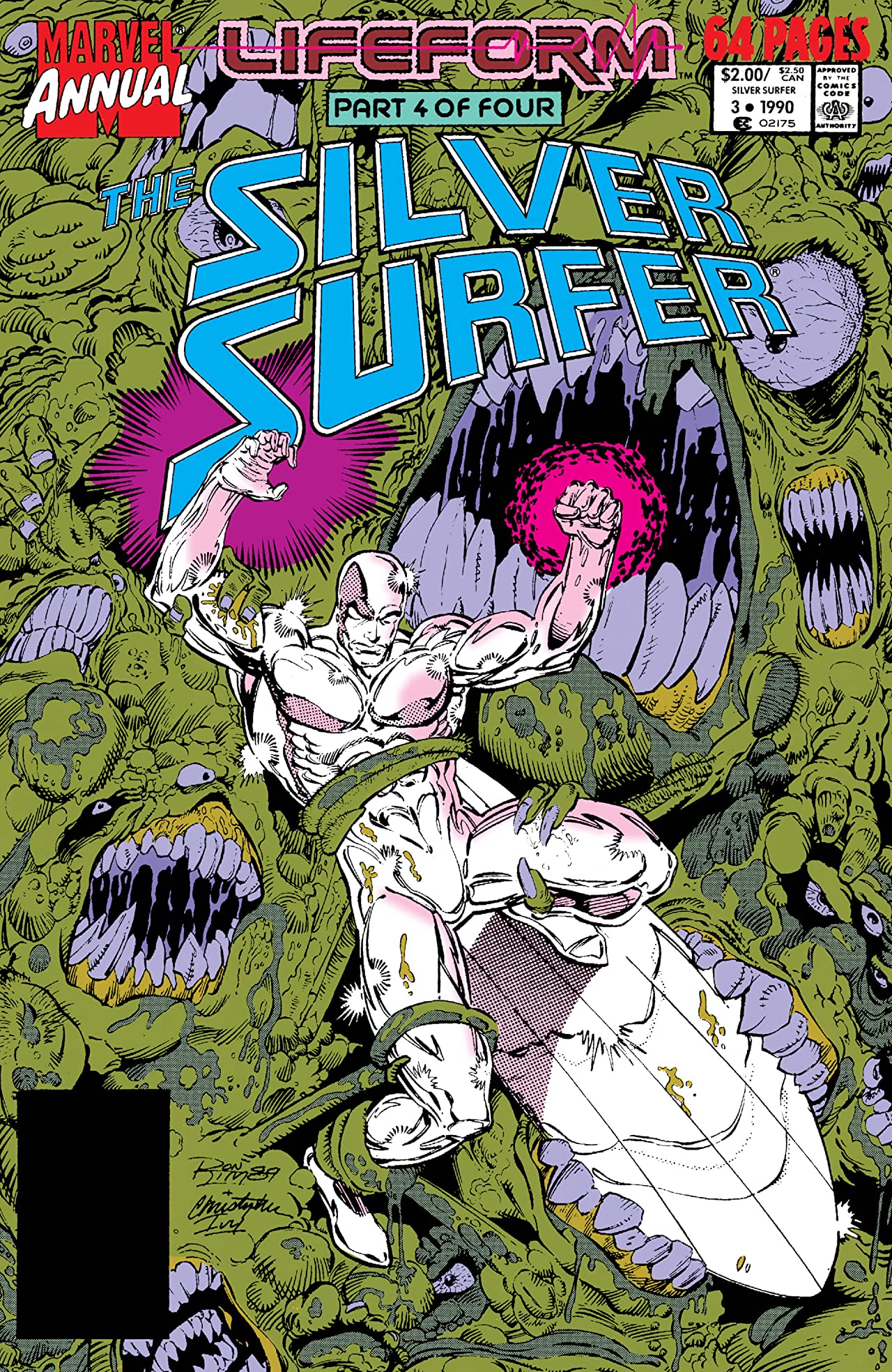
I was obviously a comics reader already, but come on, it's not the kind of thing you think you're actually going to get the chance to do. But Jim showed me how to write a script, co-wrote my first few gigs with me, and then I did some solo stories, including a backup in a Silver Surfer Annual that I'm told made an impression in editorial. I only got to do that story because the artist Jim Sherman was supposed to write and draw a story for the annual, but he disappeared in the Yucatan Peninsula in Mexico, and no one could reach him. So I stepped in to do a story with Ron Lim drawing it.
Who knows, maybe if Sherman hadn't vanished into the jungle for a few months, maybe I never get more of a chance. When Starlin left the writing duties on the monthly Surfer title to write the new Warlock monthly and Infinity Gauntlet, they offered the book to me. I've been doing it ever since.
Nrama: For a long while.
So you're a regular writer at Marvel at this point: Silver Surfer, several What If... issues, Thor, and even some Namor. You were only at Marvel for, what, five years? I think you only had two more books out while you were at DC for the most part.
How did you want to approach Thor and Surfer? Because I think we've talked about this before, but you followed a seriously legendary run on Thor.
Marz: Surfer was very much my on-the-job training. My first batch of issues were all Infinity Gauntlet tie-in issues, which really taught me how to work in a shared universe, how to tell stories between the cracks of other stories when necessary. I didn't really grasp the kind of education I was getting at the time, because I was just excited to be doing it, but it was invaluable.
Thor was a book I'd always wanted to write because I'm such a huge fan of the Walt Simonson run, as well as the original Stan Lee and Jack Kirby stuff. But my run on Thor just never turned into what I'd hoped, which was my lesson that sometimes the characters you have the most affection for are not the ones you should be writing.
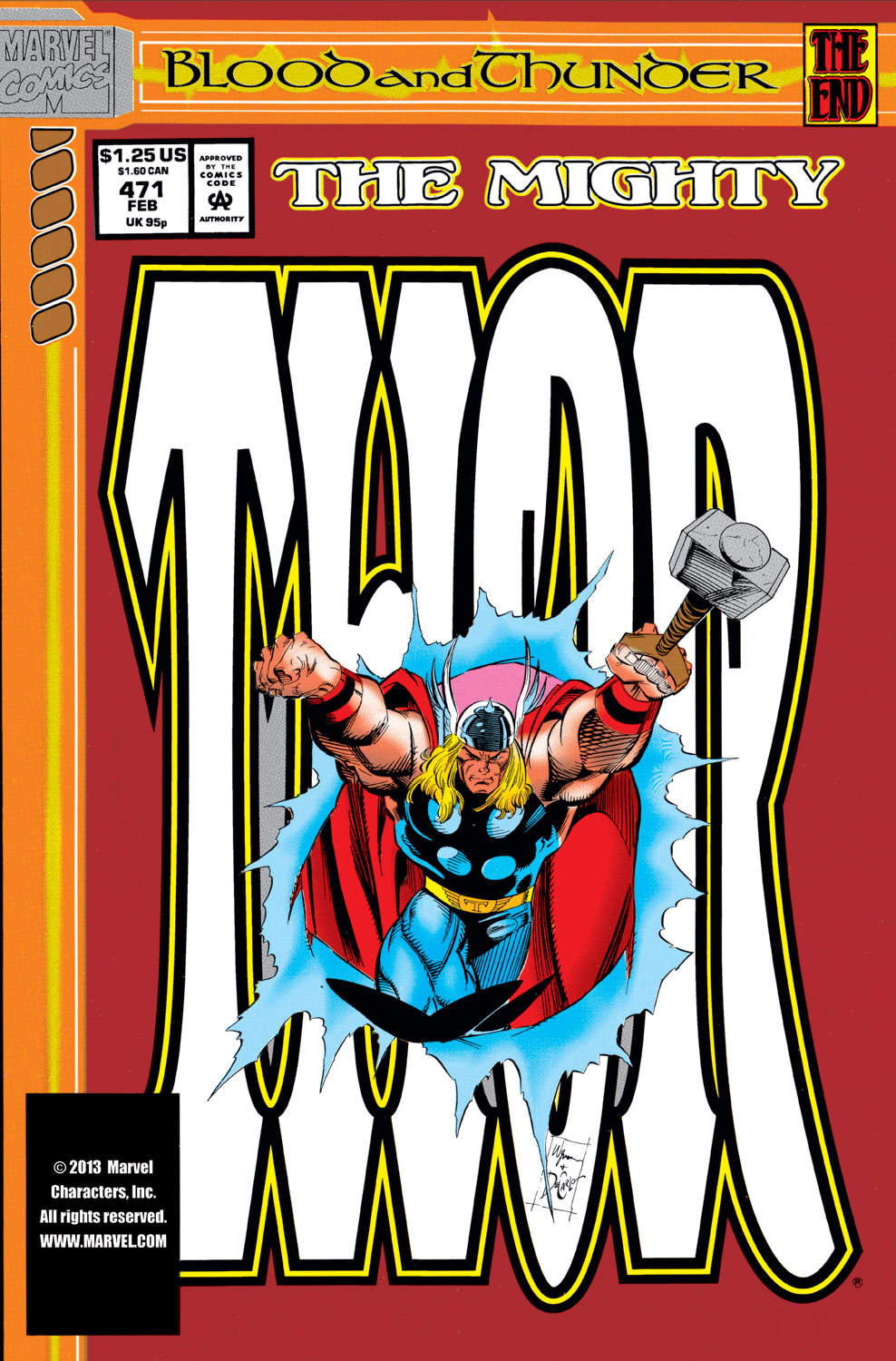
There are aspects of my Thor run I like, but as a whole, it just didn't gel. Cully Hamner was actually supposed to come over from DC and draw my run. But after telling me to find an artist for the book, which is why I sought out Cully, the editor went out and hired another artist over the weekend, and didn't tell me until it was a done deal. I walked away from the book after a year when we couldn't come to an agreement on where the book was headed. The target kept moving - put Thor on Earth, put Thor in Asgard, put Thor in outer space. Editorial didn't seem to know what it wanted, so I felt like discretion was the better part of valor, and I bowed out.
Nrama: After Jim Starlin essentially took the training wheels off, were you confident in your work? If not, how did you find it?
Marz: Yeah, to be honest, I never lacked for confidence. I knew I could do the job and be good at it. A lot of that likely stems from working at a daily newspaper as a teenager and having my writing read by tens of thousands of people every day. So in that sense, I had success pretty early.
You learn very quickly that you're not going to please everybody, so don't worry about trying. The job is to please your own sensibilities as best you can, within the parameters you're given and hope the audience comes along for the ride. I know a lot of people struggle with imposter syndrome, but I've thankfully never dealt with it.
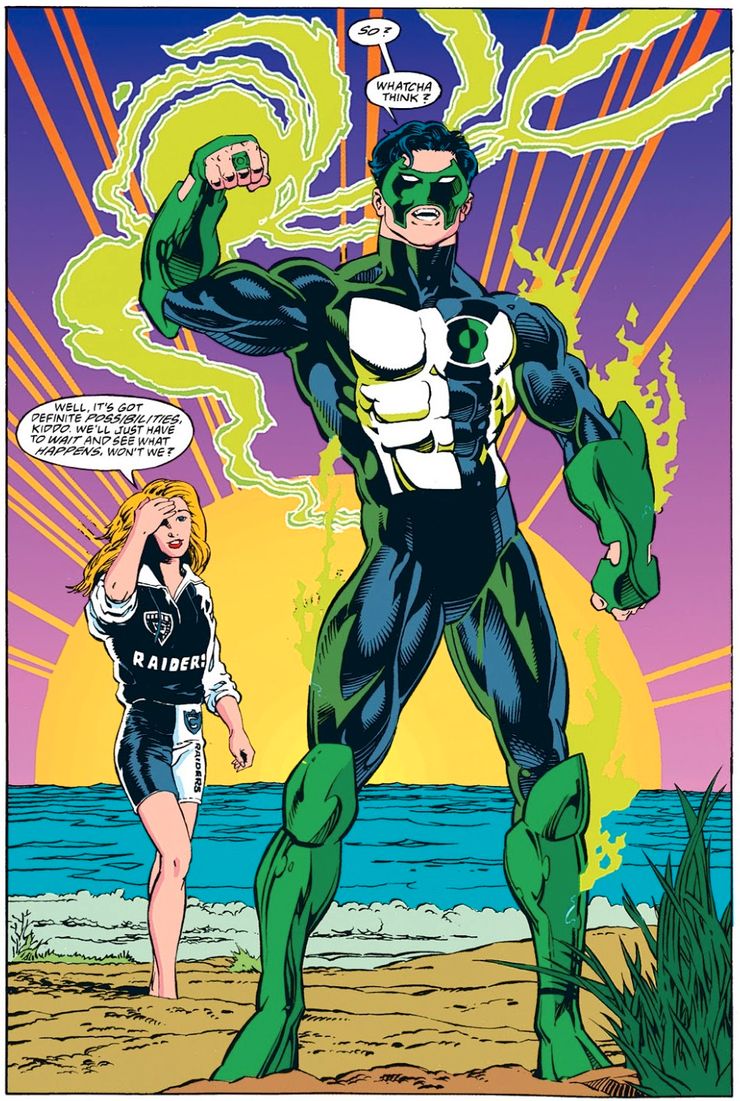
Nrama: Do you feel like your time at DC overshadowed your time at Marvel?
Marz: Boy, I have no idea. I suppose the answer depends on who you ask. I think the DC work probably gained more notoriety, or maybe more infamy, depending on your point of view. I can say that DC felt more like "home" to me.
I was on exclusive contract with DC, and spent a lot more time in their offices. As for the work itself, Green Lantern was probably more of my voice than Silver Surfer was, because he was our creation. But I think it's up to everybody in the audience to decide what matters to them.
Nrama: You put a lot of influence from John Carter in a few Green Lantern issues if I remember correctly. Especially that one annual.
Marz: Yeah, I guess most of us ultimately wear our influences on our sleeves. That Annual, in which Kyle goes into a painting to find a fantastic dimension where the painter escaped the real world, is one of my favorite GL gigs. There's a guy, in Michigan I think, who is collecting all the original art for that particular issue. He might have it all by now, which I believe would be more than 50 pages.
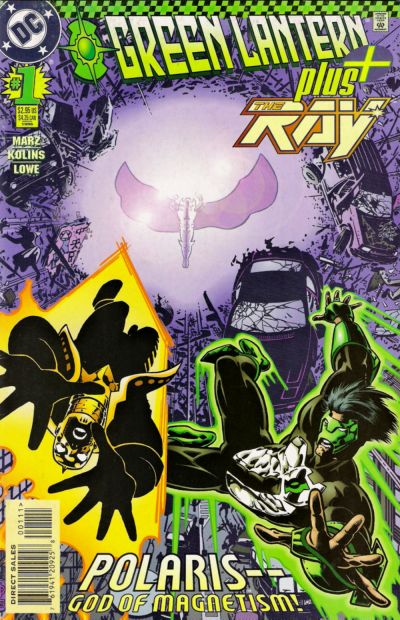
Nrama: Do you have a script you revisit or are you not one for self-nostalgia?
Marz: No, I tend not to look at my own stuff beyond checking out how it printed. I already know how the story ends, right? If anything, I might page through one of my issues to look at the art job, because I've been fortunate to have worked with a lot of exceptional artists. But that's all about the art, not my script.
Nrama: I feel like we could have a separate interview about Marvel vs DC as well as Amalgam, but what are a few things you remember about that time?
Marz: Well, I remember being really excited to be invited to that party. It was a dream job in every sense, getting to write the universes as a whole meeting for the first time. When we first started working on it, even the editorial staffs of both companies didn't know about, it our editors Mike Carlin and Mark Gruenwald. It was a pretty amazing secret to keep for the first few weeks of the project. I also remember getting in the first few pages of pencils from Dan Jurgens, which were Spider-Man meeting the Joker, and that was kind of an "Oh, shit, we're really doing this" moment.
Nrama: Soon then you leave DC and help found CrossGen. What was the general atmosphere like at the start?
Marz: Exciting. Hopeful. It felt like a great adventure with some promise. There were growing pains at the start, because Mark Alessi and his cousin, who were running the place, were not coming from a creative background. They didn't grasp that people who were making comics actually wanted to do their jobs, and would get the work done.
You didn't need to keep watch as to who showed up at 9 a.m. and who rolled in at 10:30, the work was still going to be done. So there were tensions and adjustments at the beginning, but a lot of that resolved itself over time. I enjoyed being in the same space as the rest of the creative team. I think it allowed us to make better books, and to have more creative ownership of the books.
Nrama: Did you have a plan in place after it dissolved?
Marz: The day the chief financial officer resigned and walked out of the building, he called me from his car and told me, "It's going down, make other plans." An ill wind had been blowing for a while, because Alessi's wealth had taken a big hit when the stock market tanked as the tech bubble burst, and additional investors were skittish.
That's probably another way CrossGen was ahead of its time. 10 years later, a comic/content company needing investors would've had a line out the door of people wanting to buy in. Rumors of the CFO resigning spread pretty quickly, and I got calls from Top Cow, Dark Horse, and DC within a few days, offering me work. It was pretty reassuring since our third child was due pretty soon.
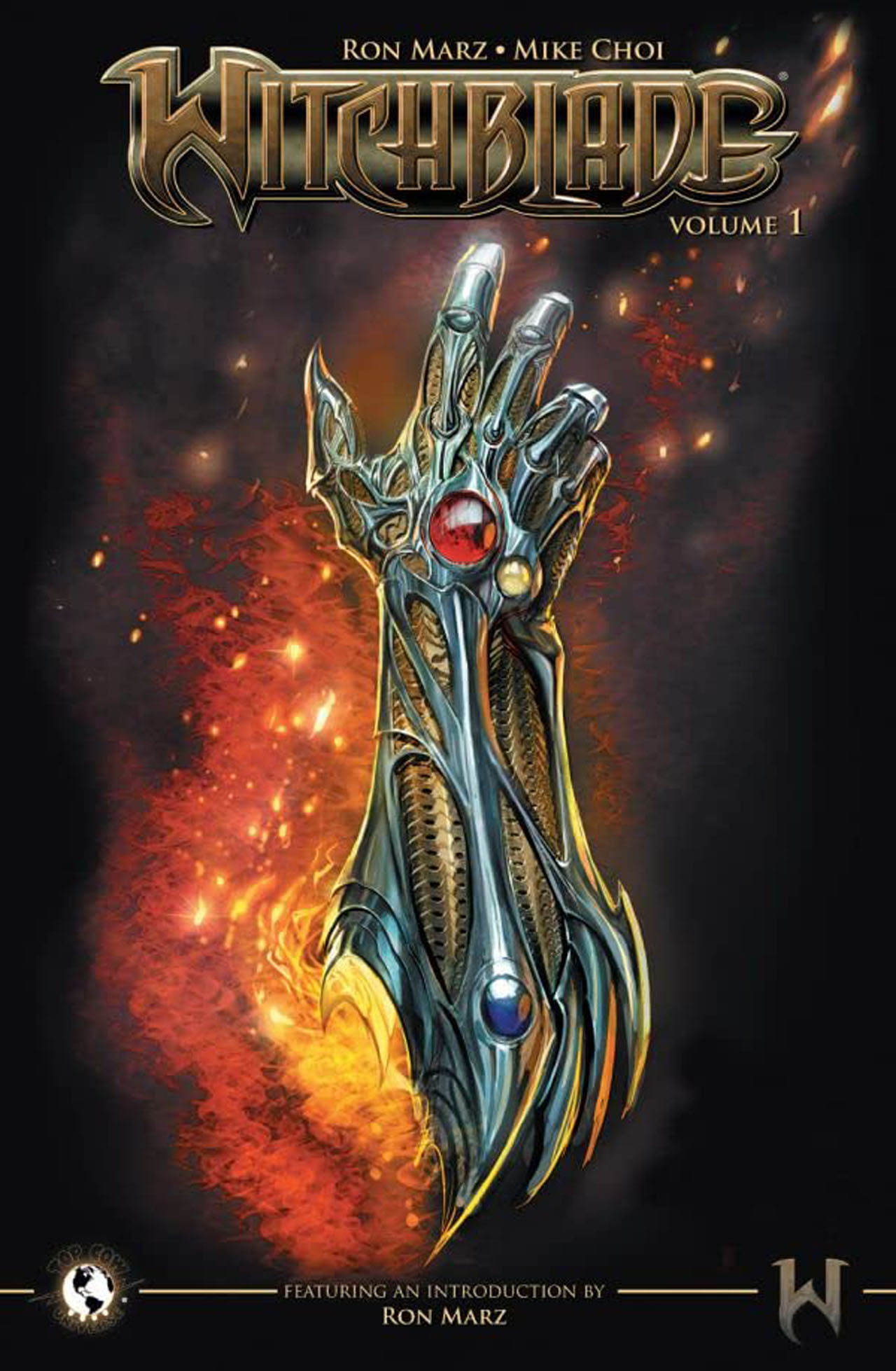
Nrama: So let's talk about your Top Cow work because you came in at an interesting time in the company and soon became exclusive to them taking over Witchblade. What was your own idea of the company and product before going in?
Marz: You know I didn't really have any experience working with them before that.
Top Cow started with Cyberforce, and then branched off to Witchblade and Darkness, which were a completely different flavor. I mean, I liked all the stuff I worked on, but I ended up writing Witchblade for about 10 years. It was never a book that I thought about writing, but when the offer came up, I did my research and figured out what the concept and character meant to me. It just happened to be a tremendous fit.
Nrama: You created a lot of mythos for that world, even getting to engineer a big crossover event Artifacts. How did this differ from a lot of the crossovers you've handled before?
Marz: Doing stories like that was not foreign to me, obviously. The thing about Artifacts is that a lot of pieces were there. There were some artifacts that weren't even in play yet, but you had the Angelus, Witchblade, and the Darkness already in place, so obviously they had some sort of relationship.
Writing it was like building a puzzle about how all these things related to each other. We used all the stuff that had been established and came up with other pieces to fill out the puzzle. Top Cow really let me wrap my arms around everything and figure out the best way to make it all relate. Artifacts is really one of my most satisfying projects, because they just let me run with it. I mean, I got to destroy the universe, and then recreate it all over again.

Nrama: You've worked for pretty much every publisher but you're also working for yourself now with Ominous Press. What are your duties there?
Marz: I'm the editor-in-chief and lead writer. It's a small company, so everybody pitches in to do a bit of everything. That's the soup-to-nuts part of my day, where I'm not just writing a script, but I'm dealing with press releases, Kickstarters, production aspects, print runs, all the things you have to have your hands on in order to make books.
Nrama: Have you ever thought about teaching?
Marz: I actually am teaching. As of two weeks ago, I started teaching a comic writing class with the Jacob Krueger Studio in Manhattan. Obviously, right now it's an online-only class, and we're doing it on Zoom. I've just started teaching it, so it's a recurring four-week course.
We talk about the theories of comics writing, the mechanics behind it, and at the end of the course everybody should walk away with a professional-level six page story. After that, if they want to continue, there are workshop aspects or even mentoring opportunities that are part of the studio. So far, so good.
Nrama: What made you want to do this?
Marz: I ran into somebody at a convention in the Hudson Valley, and he said he knew somebody who was involved with a screenwriting school, and they were looking for somebody to teach a comics course. So I said 'Sure, let's talk about it.' It took a whole for us to nail down the specifics, and in the midst of it all the pandemic hit. So now obviously we're doing it online, which is nice because I don't have to leave my office.
The whole thing has made me think about and quantify how and why I do what I do when I'm writing comics. A lot of it is instinctual at this point, but I obviously can't tell a class of two dozen people "Oh, just do it." So you have to figure out the mechanics of your style, and try to convey that to people so they can figure out the best way that works for them.
Nrama: Do you wish you had something like that when you were getting started? I mean, obviously you had a great teacher with Jim Starlin, but would something like this have been easier for you before you took the plunge?
Marz: I don't know. I had the best teacher in the world, and to be honest, what I'm teaching in the class are lessons that Jim Starlin taught me. So I suppose I should be sending Jim some sort of royalty check.
I'm very lucky that I took to writing comics naturally. I'm a fairly visual thinker, and that's a huge first step in writing comics. If you can think in pictures, you can do this job.
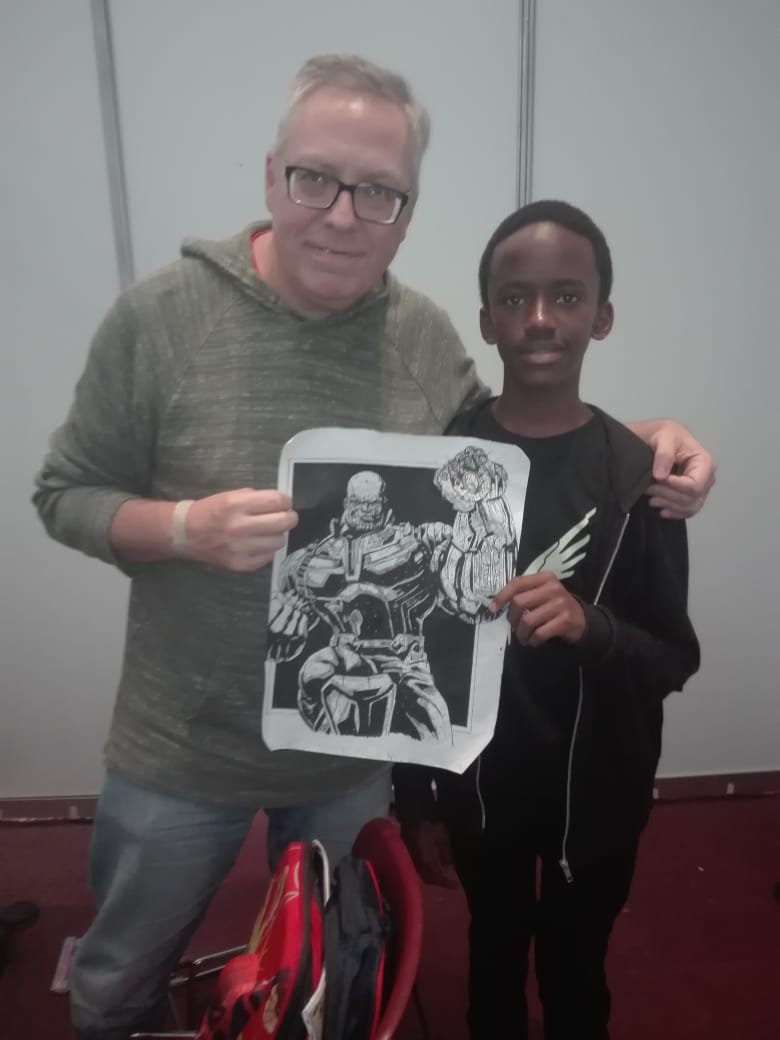
Nrama: You don't hear a lot of folks "retiring" from comics, but with teaching now, is that something you'd pursue more to maybe have a retirement plan? Do you feel like you could ever leave comics at this point and do something else?
Marz: I have a pile of work in work in front of me, and thankfully that's been the case ever since I started doing it.
Look, there's nobody who is in comics for the money or the fame, because there's not a whole lot of either. If you're in comics, you're doing it because you love comics. You have to love this, and it's quite a bit harder than screenwriting or even prose. This is the special forces of writing, and especially of art. Everybody who is doing this loves doing it. That's a factor in why you don't see a lot of people "retiring," in addition to everybody being a freelancer and there being no formal retirement plan for any of us.
If the gold bullion fairy came to my door tomorrow and left untold riches, I'd still write comics because it's the thing I love doing. You come to it because you love it, and all things being equal, you never lose that love.
Lan Pitts likes watching, talking, and writing comics about wrestling. He has mapped every great taco spot in the DC and Baltimore areas. He lives with his partner and their menagerie of pets who are utterly perfect in every way.


